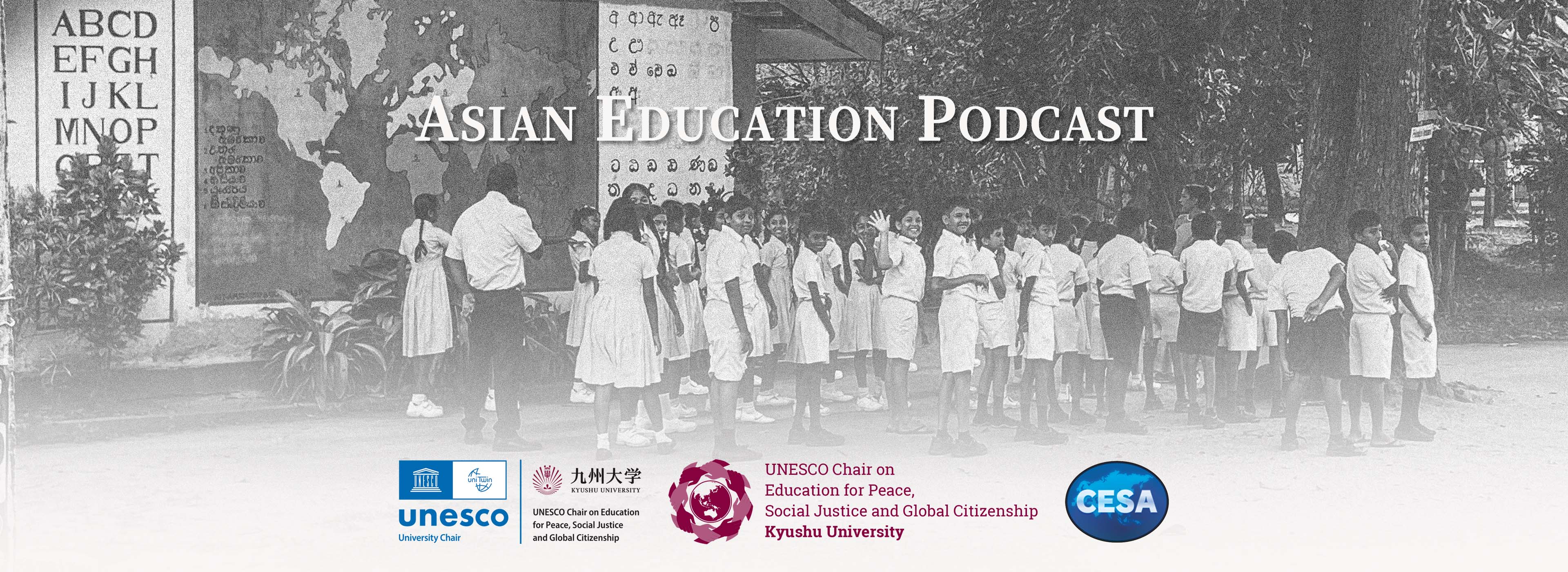
In this episode, Edward Vickers talks to Professor Fazal Rizvi of the University of Melbourne about his recent involvement in recent education reform initiatives in the Kingdom of Bhutan. Famous internationally for its espousal of the ‘Gross Happiness Index’ in place of the conventional notion of GDP, Bhutan is otherwise relatively little understood or researched by outsiders (in part due to stringent controls on access for tourism or leisure travel). But in 2021, Professor Rizvi was invited by counterparts in Bhutan to advise or consult on reforms being pursued by the government there. In this interview, he reflects on his experience so far.
Fazal and Edward begin by discussing how Bhutanese understandings of ‘happiness’ may be somewhat more complex than is often appreciated by those familiar with the GHI. They then review the education reform agenda as enunciated by the King in his 2021 ‘Kasho’ elaborated subsequently by the Prime Minister in 2021, noting its broad scope and ostensibly rather conventional concern with ‘skills’ and employability (understandable in the context of Bhutan’s chronic youth unemployment). The Bhutanese Government regards reform as both necessary and urgent.
But to understand the context out of which the drive for reform has emerged, Fazal emphasizes the need to understand the history of Bhutan’s education system. The character of the system has been profoundly influenced by the involvement of Indian educators, but by comparison with most parts of India it has been ‘spectacularly’ successful. Since the 1970s, access to schooling has expanded rapidly, resulting in comparatively high levels of basic literacy and numeracy today (almost universal amongst younger Bhutanese).
What has enabled this educational success, in a country that has remained relatively impoverished and isolated? Part of this story involves the geopolitical strategic position of Bhutan, wedged between India and China along their Himalayan border. This helps explain the willingness of the Indian government to offer various forms of support to its small neighbour.
Despite the considerable success of educational development in Bhutan (or perhaps because of it), the government in recent years has been seeking to promote ‘innovation’, in particular through the establishment of a new, experimental school, the Royal Academy of Bhutan. Created in 2013 under the leadership of the Indian educational reformer, Arun Kapur, the Academy has now been in existence for 10 years. Adopting a ‘baccalaureate’ approach to curriculum and development, Kapur has sought to depart from the conventional, narrowly examination-focused approach that typifies schooling in Bhutan as in India. Central to the initiative is a focus of education on five areas of development, not only cerebral but also physical, social, emotional and spiritual, in an attempt to grounds educational practice in Bhutan’s cultural traditions.
Fazal explains the vision behind this reforming ‘pilot project’, and the way it has been enacted at the Royal Academy. He notes how the initial pilot was declared a success, but that problems have arisen in relation to attempts to ‘transition’ the experiment to a wider range of schools. Fazal himself was approached in 2021 precisely to advise on this matter. Crucial here are limitations of resources, personnel and training, which make it difficult to replicate the Royal Academy model in schools across Bhutan, or at least affect the speed with which this can be done.
The reform project is ongoing, and its ultimate outcome remains unclear, but while recognizing the difficulties involved in ‘scaling up’ an innovative model of this kind, Prof. Rizvi sees the development of the Bhutan Baccalaureate by the Royal Academy itself as an impressive achievement.
Recommended readings:
Kuenzang Gyeltshen and Sonam Zangmo (2020). ‘School Education in Bhutan: Policy, Current Status and Challenges’, in P. M. Sarangapani, R. Pappu (eds.), Handbook of Education Systems in South Asia, (Global Education Systems). Singapore: Springer. https://doi.org/10.1007/978-981-13-3309-5_12-1
The Drup Gyalpo (2021). ‘Royal Kasho on Education Reform’, The Bhutanese. Thimpu. February 6.
